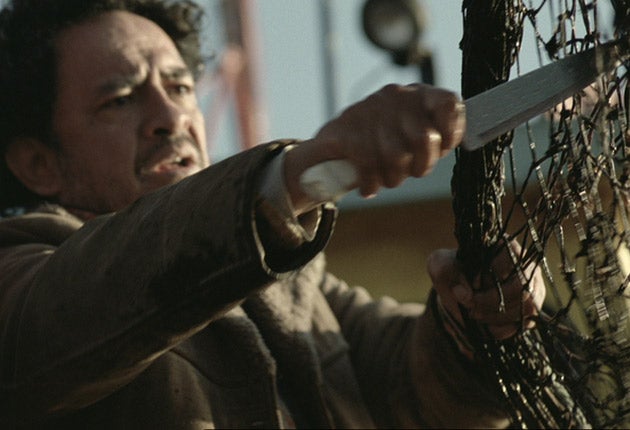Claire Beale On Advertising: When shock tactics go too far...

Imagine yourself in the creative department of a German advertising agency. A brief has just come in for an anti-Aids TV commercial. So how do you persuade young people to put caution before pleasure and acknowledge that sex can be fatal? Think hard. What's the most traumatising image you can conjure to shock your carefree and careless audience into paying attention and donning a condom?
It's not hard to see how the German creatives came up with the idea of Hitler having sex. Coming up with the idea, though, is one thing, having the nerve to make it into an ad is quite another. The result is a steamy soft-core porn film of a couple having sex, all grinding bodies and swinging breasts. It's not until the end frame that we see the man's face: a sweaty, straining, orgasmic Hitler appears, alongside the line "Aids is a mass murderer". The ad is beyond shocking, and has proved predictably controversial.
On the other side of the Atlantic a similar advertising controversy has been building. This time the worthy cause trying to shock people into awareness is the World Wildlife Fund. Its Brazilian office worked with DDB Brasil to come up with a print ad and a film so disturbing in its approach that the entire North American ad industry has been buzzing.
The WWF campaign shows a film of Manhattan being attacked by an entire fleet of planes in a scenario that plays upon the horrors of the 9/11 atrocity. The copy – I paraphrase – says that the 9/11 attacks were bad, but the 2005 tsunami was worse. The strapline at the end reads: "Our planet is brutally powerful. Conserve it."
Hardly surprising, then, that the ad was criticised for its insensitivity and crass abuse of a tragedy. Cue furious backtracking from agency and client, who blamed inexperienced juniors on both sides for allowing the campaign to see the light of day.
It's possible that the WWF campaign was never really intended for public consumption, but as a scam ad primarily created to enter awards. It happens; rather a lot, in fact. Nevertheless, both agency and client were clearly aware of its existence and some people somewhere at both companies felt it was an appropriate way to market the WWF brand.
Anyway, what both the Aids awareness and WWF campaigns illustrate are the pitfalls of producing social awareness campaigns. In these days of communication saturation when commercials can become little more than wallpaper, forcing an unpalatable social message – unprotected sex can give you Aids, or we need to treat our planet with more respect – on an audience that would rather not admit to the issues can lead to desperate tactics.
We would not have heard of either of these ads had they not employed such disturbing imagery. The power of the iconography employed has amplified the commercial messages well beyond the countries for which they were intended and has given both campaigns the sort of oxygen neither advertiser could afford to buy.
Do the ends justify the means? Is advertising – for anything, even a life-and-death issue – ever an appropriate vehicle for such disturbing and provocative themes? Advertising is routinely brought in as a weapon against social problems and is asked to tackle some of our most sensitive issues: knife crime, drink-driving, obesity, binge drinking, sexually transmitted diseases, drug abuse.
In the end, it comes down to the sensitivity and genuine commitment to the cause with which the ads are created. For my money, the Aids awareness campaign is defensible on this score. WWF's ad, though, is dangerously crass and exploitative. Both the agency and the client should be ashamed of themselves.
Best in Show: HSBC (JWT)
It's a year since the collapse of Lehman Brothers brought the financial world to its knees. It will take many more years for the banking industry to regain the public's faith and support. But HSBC's new ad by JWT will move the game forward an inch for the brand. The theme is about responsibility and integrity; ours, funnily enough, not theirs. In the ad a fisherman catches a dolphin in his net, and responsibly lets the dolphin and the rest of his catch go rather than selfishly sacrifice the dolphin to keep his haul. It's a lovingly shot, evocative commercial and there's no denying that, in the current climate, taking responsibility for your finances is a good idea.
Subscribe to Independent Premium to bookmark this article
Want to bookmark your favourite articles and stories to read or reference later? Start your Independent Premium subscription today.

Join our commenting forum
Join thought-provoking conversations, follow other Independent readers and see their replies